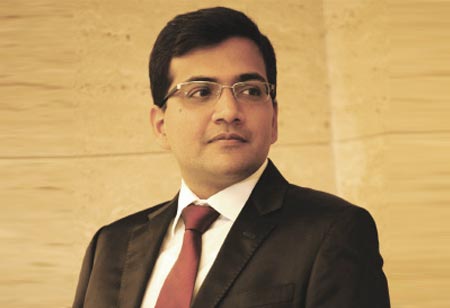Across the world, technology is changing the way we look at everyday things. These are interesting times to be at the crossroads of technology and the manufacturing industry. Some of the exciting work happening are in the following areas:
Urban Mobility
Urban Mobility is a strategic plan designed to satisfy the mobility needs of passengers and businesses within cities and their surrounding areas. It includes multiple modes of transport that enables commuters to choose from the best routes available so that they access cheaper, faster and more efficient travel options. When done well, commuters save a lot of their travel time and also get an enhanced, hassle-free and unified travel experience.
Noticing the huge untapped opportunity that lies there, Siemens has recently invested heavily in Urban Mobility. By installing cameras and sensors to monitor traffic flows through the city, the app allows passengers to plan their trips by selecting among the multiple modes of transport available, avail mobile ticketing options and make their payment using mobiles through inter-connections and QR codes. The commuter can decide how they want to travel and make their arrangements in advance. Recently Oliver Zipse, the CEO of BMW has gone on record saying that they would like to welcome additional partners in the area of Urban Mobility, which has great future potential. Closer home, the Ford Motor Company in partnership with Hinjawadi Industries Association (HIA) has launched Office Ride – an app-based shared mobility solution for the residents of Pune city, to enablesafer daily commute alternative to more than 350,000 people working at Rajiv Gandhi Infotech Park.
The Urban Mobility Lab at MIT (Massachusetts Institute of Technology) was set-up with the purpose of improving urban travel by fusing behavioural science and transportation technology. In India, it’s not just the private sector that is spending on Urban Mobility but even the government sector has recognised its potential. Recently, the Delhi government has partnered with Rocky Mountain Institute (RMI) to host the Urban Mobility Lab, a platform that supports Indian cities in identifying, implementing, and scaling pilot projects and solutions that can transform mobility in cities.
Industrial Internet of Things (IIoT)
The Industrial Internet of Things (IIoT) refers to the extension and use of the internet of things (IoT) in industrial sectors and applications. Though IIoT is a technology that has seen many turns in the past, it is still continuing to evolve and create new value for industries, especially manufacturing 4.0. With the outcome of smart devices, sensors, transmission systems, the IIoT
value chain continues to grow giving IIoT a whole new scope of functionalities altogether.
Consider some facts that have come to light in the past couple of years. It is estimated that 60 percent of global manufacturers will use analytics data tracked using connected devices to optimise manufacturing processes. Close to USD 70 billion will be invested by manufacturers in IIOT by 2020. If used optimally, IIOT can help the manufacturing sector reduce product development and assembly costs by 50 percent. These are some staggering statistics only because IIOT will find application in virtually every domain of the manufacturing industry starting from facility management to inventory management to enhancing quality control, increase plant safety and security to optimize the logistics and supply chain of a plant.
-
Digital Twins are expected to enhance the training processes in manufacturing plants for new or existing employees
Divy Shrivastava, Co-Founder & CEO, Nineleaps Technology Solutions
Digital Twins
A digital twin is a replication of a physical process and assets within a simulated virtual environment. Digital twins are being adopted in almost all the verticals from manufacturing to the government sector by creating virtual counterparts of them selves to leverage data and increase efficiencies exponentially. This in turn is helping in predicting potential disasters, maintenance works and promotes cost reductions.
It has been estimated by Gartner that there will be over 20 billion connected sensors and endpoints. This will create immense potential for digital twins and gives the industry reason to believe that in their evolution over time, improving their ability to collect and visualize the right data, apply the right analytics, and respond effectively to business objectives. Gartner Analyst, David Cearly has stated that both private companies and governments are implementing digital twins of their organizations to understand and effectively drive business processes, create flexible, responsive and ever changing processes that react to the changing conditions without interventions.
Apart from enhancing the efficiency of the process, digital twins can also help in the maintenance of their real-life counterparts. This can substantially decrease costs and improve productivity in a simple industry such as an oil refinery. Digital Twins are expected to enhance the training processes in manufacturing plants for new or existing employees, thus giving them a safer as well as an informative place to learn. They can help industrial companies drive transformation and stay competitive.
Healthcare
Even though high-tech diagnostic imaging tools and techniques have been around, there has been rapid progress made recently due to AI and Machine Learning. Advances in these technologies have allowed for the development of more accurate, widely accessible, and relatively inexpensive non-invasive diagnostic tools. In India, due to the scarcity of doctors and a huge population, AI is no more a luxury but a necessity.
Companies like GE and Philips have taken the lead in ensuring that AI bridges the supply-demand gap. GE Healthcare’s intelligence platform, Edison is designed to help achieve more efficiency, improved patient outcomes, and easy access to care. Edison’s applications can integrate and assimilate data from various sources and apply data analytics or advanced algorithms to generate clinical, operational, and financial insights. Edison solutions can be securely deployed via Cloud or directly onto smart devices.
What companies like Philips plan to do with their AI products is to offer doctors and hospitals the ability to bring all patient information together for precise diagnosis, personalised therapy and intervene early to avoid deterioration.
